The battle to stop the horrific fate awaiting orphaned joeys
A wildlife carer rehabilitating an orphaned joey says she is frustrated that supermarkets are continuing to sell Australia’s native animals to feed domestic pets.
Coles social media page received a post in June showing Morty, a young eastern grey kangaroo, who was left for dead by a hunter, after his mother was shot.
Wild2Free founder Rae Harvey said she shared the image to highlight the sadness she feels every time she visits a supermarket.
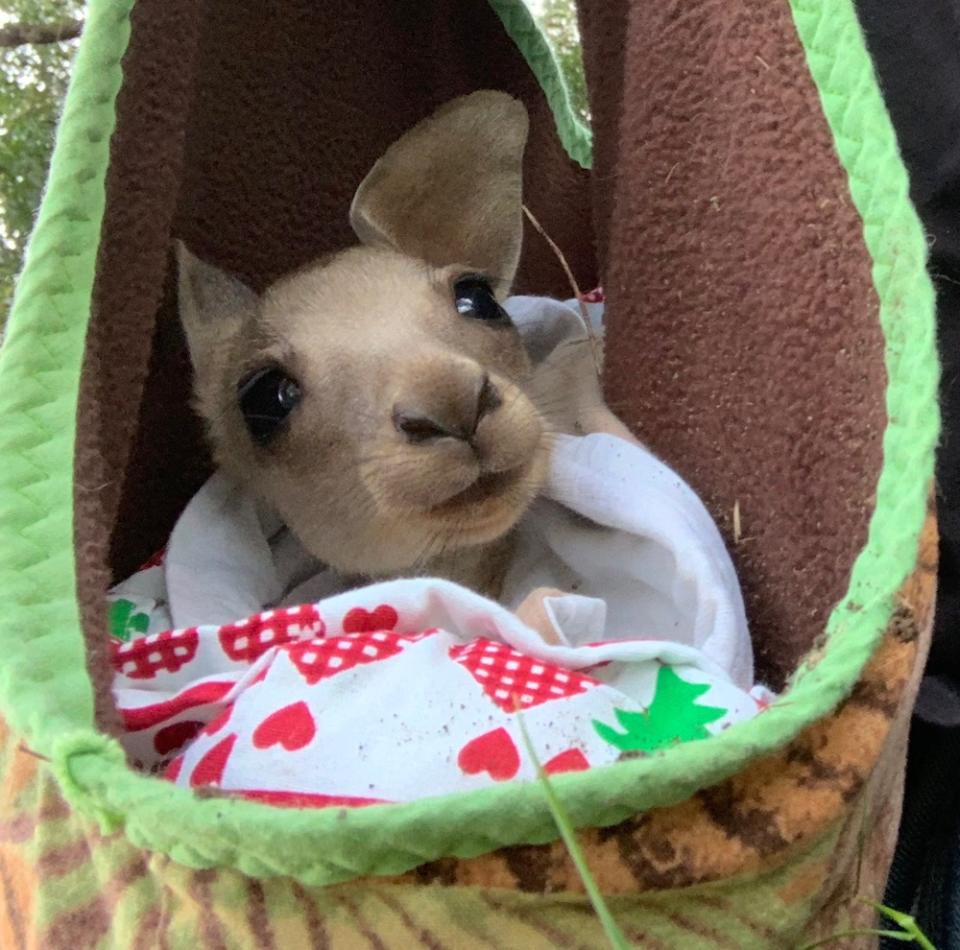
“Do you have any idea how heartbreaking it is, to go into Coles and see ‘Morty’ on the shelves?” she wrote.
“Killing native animals to feed non-native animals. Shame on you Coles.
“I refuse to shop in Coles and this will continue until wildlife meat is off the shelves.”
‘Morty’s life is worth 15 bucks’: Kangaroo carer’s heartache
Morty, now two years old, was one of the lucky few kangaroos in the area to survive the blaze and he has now grown to 20kg – a weight well above the legal slaughter size.
While the young roo has a bright future ahead if he stays within the Wild2Free sanctuary, Ms Harvey cannot help but worry about the fate of other kangaroos.
“So Morty’s life is worth fifteen bucks to a shooter, but it’s cost me $1500 to raise him,” she told Yahoo News Australia.
“What am I supposed to do, pay the shooters’ salaries to stop them killing roos?
“If I gave a shooter $1,500 instead of raising Morty, how many lives would I have saved?
“They’re the things I think about.”
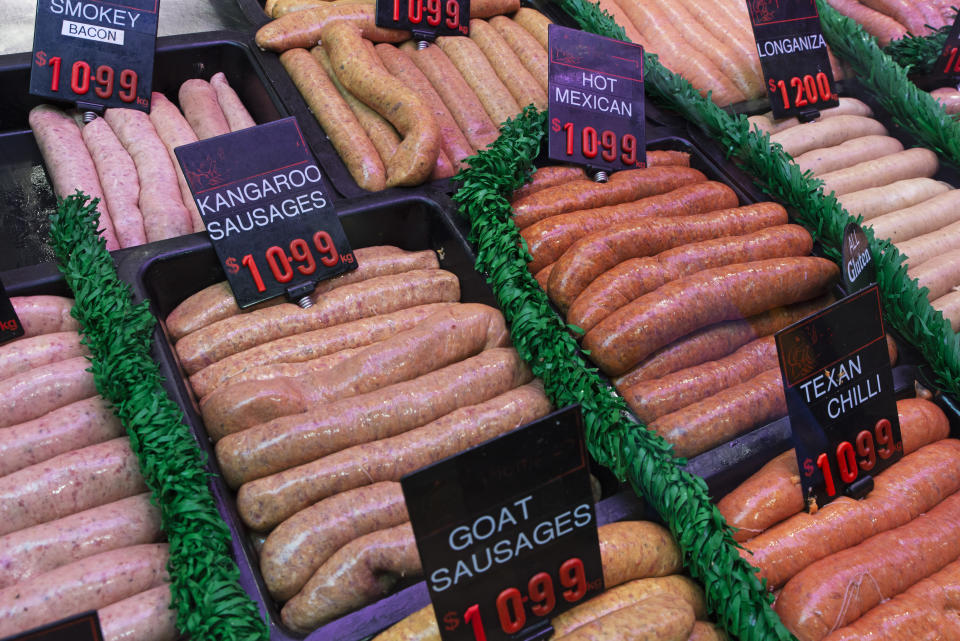
Coles responded to Ms Harvey’s post, highlighting key animal welfare initiatives made under Allister Watson, their previous general manager of meat, between 2009 and 2015.
“Coles takes the humane treatment of animals seriously, and has led the Australian market through initiatives such as sow stall-free pork, RSPCA certified chicken, and No Added Hormone Beef,” they wrote.
“Our kangaroo meat supplier, Macro, adheres to stringent welfare guidelines set out in the Federal Government Code of Practice for the harvesting of kangaroos for commercial purposes.”
‘Where is the evidence that this is done to any standard?’
While Morty’s mother was shot by a hunter employed by a farmer, commercial harvesters who shoot to stock butcher’s shelves must comply with a separate code of practice specific to the industry.
Film-maker Michael McIntyre told Yahoo News Australia that during production of his documentary ‘Kangaroo: A Love-Hate Story’, he developed concerns about enforcement and compliance with the code.
As well as guiding shooters on joey euthanasia, the code contains directives requiring shooters to kill adult kangaroos with a single headshot, which Mr McIntyre believes difficult to do consistently.
“This is an industry where a professional shooter will go out in the middle of the night, in the bush, on their own, shooting wild animals from often 100 metres or further away,” Mr McIntyre said.
“So I bring that up, because where is the monitoring, where is the evidence that this is being done to any standard or any code?
“There's basically none.”
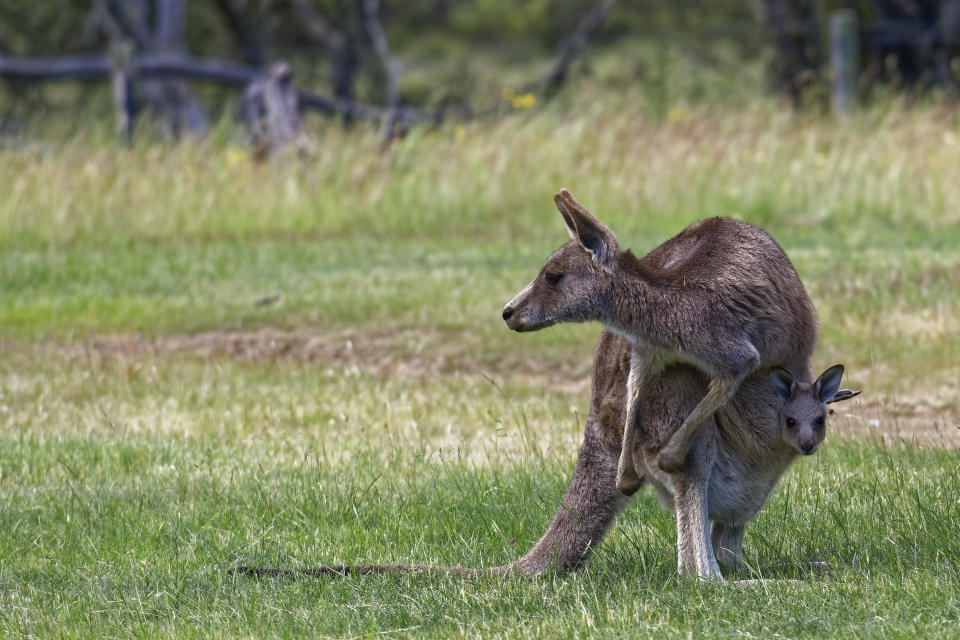
Coles did not respond to specific questions from Yahoo News Australia about methods used to euthanise joeys, or how the shooting code is enforced, but issued a statement.
“The Coles Ethical Sourcing Policy applies to all suppliers of goods for resale in our stores, and our Ethical Sourcing Supplier Requirements apply to all suppliers providing Own Brand products, fresh produce and meat sold in Coles supermarkets,” a Coles spokesperson wrote.
“Coles works closely with our Own Brand, Fresh Produce, Seafood and Meat suppliers through our Ethical Sourcing program to assess site risks and approve sites against these Supplier Requirements.
“Under their Terms of Trade with Coles, proprietary brand suppliers agree to uphold the Coles Group Ethical Sourcing Policy and manage animal welfare risks in their supply chains.
“If a proprietary brand supplier finds confirmed non-conformances in their supply chain, Coles’ expectation is that they will address and remediate these issues.”
Kangaroo carer to share Morty’s story with Woolworths
While Ms Harvey’s social media post was directed at Coles, she told Yahoo News Australia that she plans to approach Woolworths next, hoping that reading Morty’s story could contribute to a re-think of their sale of wildlife.
Both Coles and Woolworths use South Australian based Macro Meats as their primary supplier of kangaroo products.
The family-owned company have been operating for over 30 years and are the word’s largest distributor of the meat, exporting to over 50 countries.
Woolworths said they are confident the process of harvesting the animals for human consumption is strictly regulated, with each animal being shot in the wild by a trained and licensed harvester.
“At Woolworths we offer a wide range of protein to meet the different needs of our customers,” a Woolworths spokesperson wrote.
“We partner with reputable kangaroo meat suppliers who not only produce high quality products but also adhere to strict industry and government standards.
“We place the utmost importance on the ethical treatment of animals and will continue to work with our suppliers to ensure these high standards are upheld.”
Aldi not selling kangaroo in meat section
An Aldi Australia spokesperson said that while they don’t supply kangaroo meat as part of their everyday grocery range, they stock some pet foods that contain it as an ingredient.
“The supplier for our pet food adheres to the strict Kangaroo Management Chain of Responsibility, as advised by the Kangaroo Industries Association of Australia (KIAA).
“All animals are inspected by the supplier’s facility operators and external third parties, to ensure adherence to the standards.
“We are committed to animal welfare.”
‘We are 1000 per cent transparent’
The director of Macro Meats, Ray Borda, supplier to both major supermarkets, confirmed that kangaroo harvesters are not regularly monitored while they are actually shooting because hunting often occurs remote areas.
Instead, once the animal is dead, carcasses are analysed to confirm how it was shot and butchered, ensuring all animals butchered comply with welfare and hygiene standards, according to Mr Borda.
He says kangaroos at Macro Meats are inspected at up to 14 different points and that if a shooter was proven to have breached the code, they would be immediately suspended.
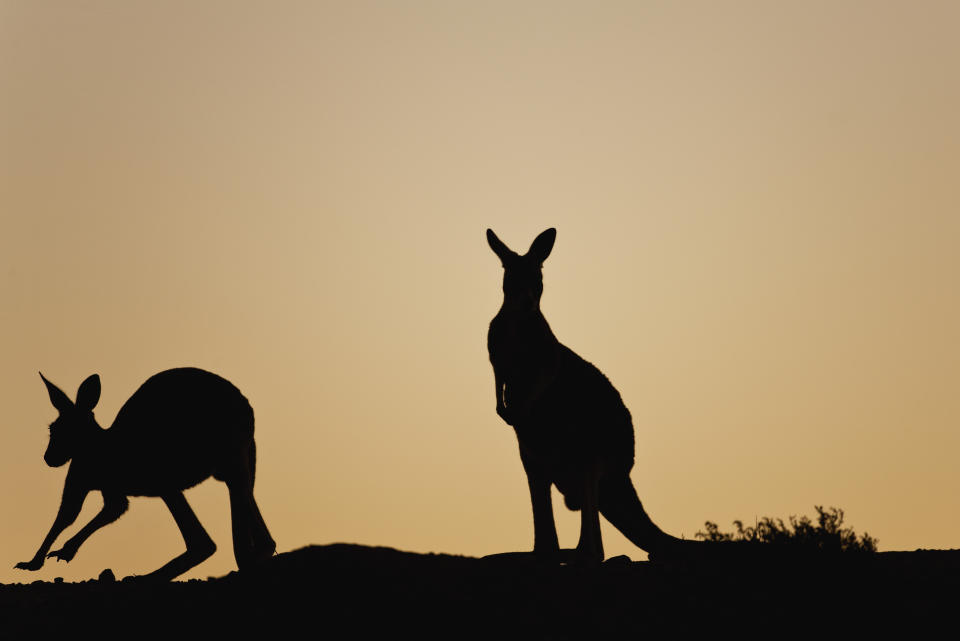
Despite kangaroos being butchered in the field, Mr Borda argues that animals shot in the body would exhibit physical signs from the wound, and the taste of the meat would bet tainted due to stress.
“I say to anybody, we are 1000 per cent transparent,” he told Yahoo News Australia.
“If you want to go out with an accredited shooter, if you want to come out to our premises and have a look, by all means do.”
‘Cold hard fact of life’
As the president of the national president of the KIAA, Mr Borda says he acknowledges that kangaroo harvesting is a “sensitive” issue and respects the work of wildlife carers.
“So we've got to always remember we're dealing with a protected species,” he said.
“There's no way we can at all cross the line, we can’t.”
Woman calls for help after finding 'kangaroo' hiding on her ROOF
Disturbing scene on off-leash beach highlights 'pretty horrible' issue
'Could have been prevented': Disturbing images reveal fatal threat to wildlife
When done correctly, Mr Borda agues that kangaroo harvesting is the most humane way to take an animal’s life for human consumption.
“(Shooters) take the animal in its own environment. It's spotlighted. It's taken,” he said.
“Stop and think about chicken, pork, beef, lamb… think about how that’s all taken.
“So really, we're very, very protective of the animal welfare situation.”
He says animal welfare is the number one concern at his business, adding that he has never killed an animal himself.
“I do understand. I do understand taking any animal is something that can't be taken for granted and you must do it respectfully,” he said.
“The fact is we're at the top of the food chain, and we eat meat, and I don't know how else you can take an animal.
“So it's a cold, hard fact of life.”
Divide between harvesters and carers
The picture of Morty highlights a chasm between carers who have personal experiences with individual kangaroos and people who see our national symbol as an alternative to farmed animals.
As Australia continues to be hit hard by bushfire and drought, many animal advocates say they fear for the long-term future of the kangaroo.
Some have called for a moratorium on commercial shooting, arguing that accurate head counts have not been completed and the full scope of wildlife losses are unknown.
Parts of drought-hit Australia, including western Queensland, have suspended commercial harvesting due to falling numbers and many shooters in these areas have left the industry.
Ms Borda says this shows that the industry is responding to the conditions, and that kangaroo numbers in outback Australia are high and that his industry provides a service to farmers.
“We’re only there as a management tool to control the numbers,” he said.
“If there’s no problem then we’re not needed.”
If kangaroo numbers did become dangerously low, he says the government would suspend the entire industry, so it is not in his interests to over-shoot.
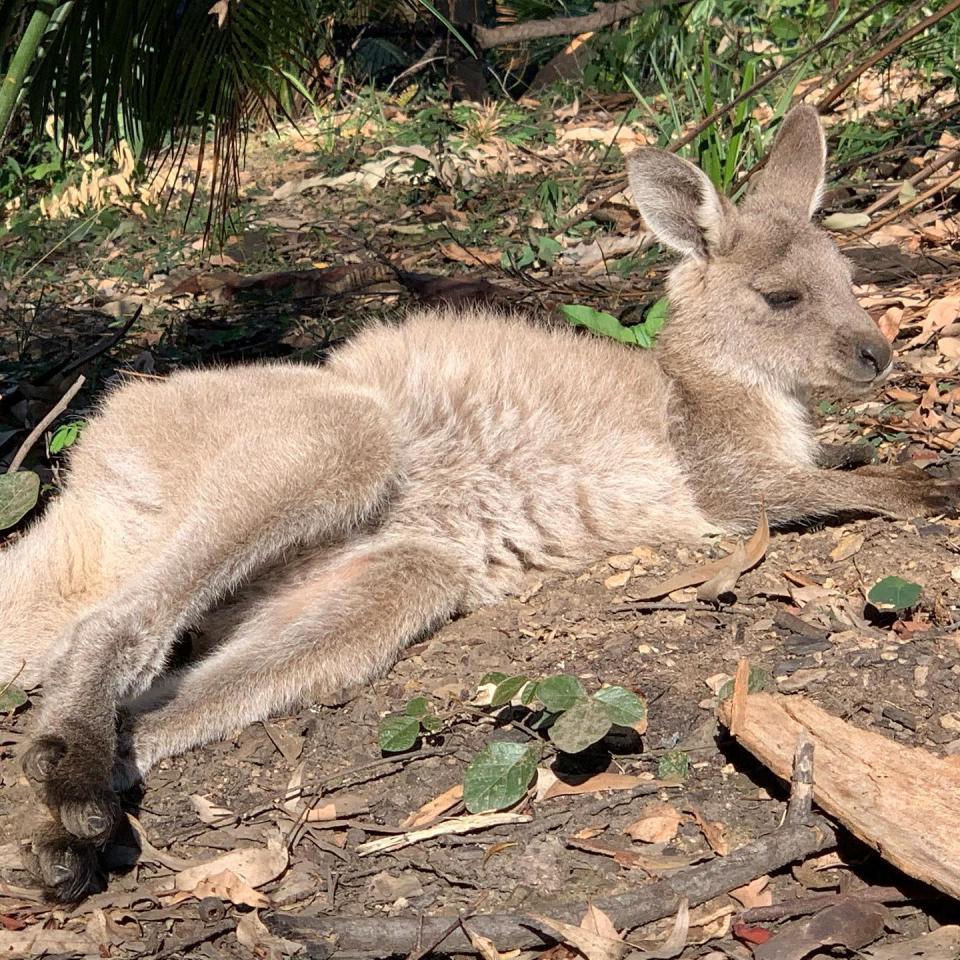
While farmers and commercial harvesters say that kangaroos compete with feed with livestock and need to be managed, Ms Harvey says in her experience they only eat the tips of grass and actually promote growth.
As Ms Harvey’s sanctuary slowly springs back to life after the bushfires, some of the kangaroos she has raised have returned to her property to graze.
Morty has overcome many setbacks in two short years of life and will likely live a long life if he remains on Ms Harvey’s property.
“Morty’s been through hell, he’s been through a fire, he’s had the most traumatic life,” Ms Harvey said.
“He’s strong and he’s happy and he’s healthy.
“But he’s not the only orphan I’ve raised, every single one has a unique personality and is capable of giving love.”
The author, Michael Dahlstrom, is a registered native bird carer in NSW.
Do you have a story tip? Email: newsroomau@yahoonews.com.
You can also follow us on Facebook, Instagram and Twitter and download the Yahoo News app from the App Store or Google Play.




